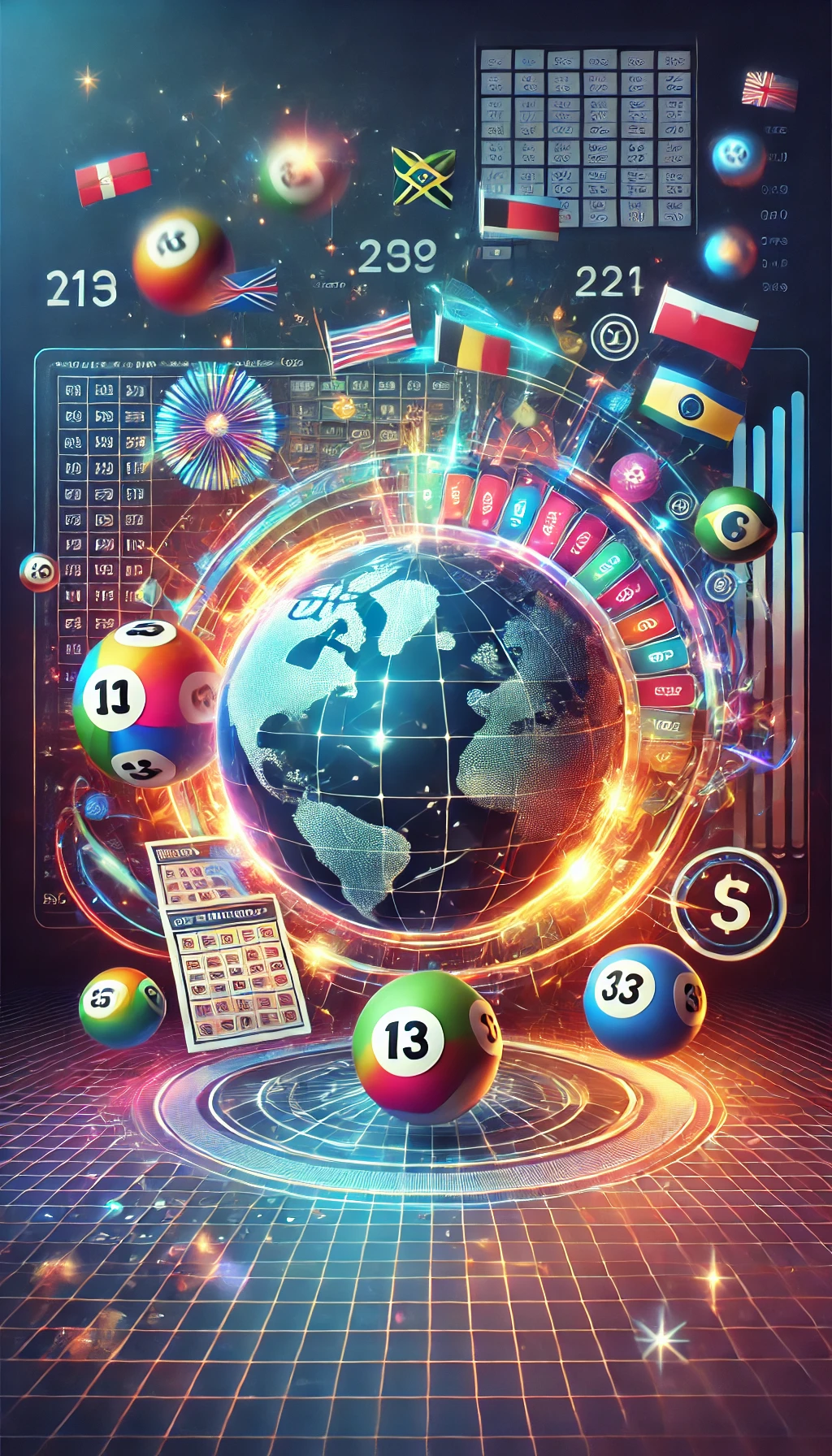Lotteries are a universal phenomenon, offering excitement, hope, and the dream of life-changing riches. While the concept of buying a ticket and hoping for a jackpot is the same worldwide, the way lotteries operate, their rules, and their cultural significance vary greatly across countries. Let’s take a closer look at how lotteries work around the globe and what makes them unique.
1. United States: Home of the Mega Jackpots
The U.S. is known for its massive lottery prizes, thanks to multi-state games like Powerball and Mega Millions.
Key Features:
- Multi-State Games: Tickets are sold across multiple states, creating enormous jackpots.
- Payout Options: Winners choose between a lump sum or annuity payouts.
- Odds: The odds of winning are extremely low, making the jackpots grow exponentially.
Record-Breaking Moment:
In 2016, the Powerball jackpot reached a staggering $1.586 billion, shared by three winners.
2. Europe: Cross-Border Lotteries
European lotteries like EuroMillions and EuroJackpot allow players from multiple countries to participate.
Key Features:
- Collaborative Lotteries: Countries pool resources for larger jackpots.
- Fixed Ticket Prices: Uniform ticket pricing ensures accessibility.
- Guaranteed Payouts: Jackpots roll over until they reach a capped amount.
Unique Aspect:
Winnings in many European countries are tax-free, unlike in the U.S. where taxes take a significant portion.
3. United Kingdom: National Lottery with a Cause
The UK National Lottery stands out for its charitable contributions.
Key Features:
- Lottery Funding: A significant portion of ticket sales funds public projects like arts, sports, and education.
- Games Variety: Offers draw games, scratch cards, and instant-win options.
- Tax-Free Prizes: All winnings are paid out in full, without deductions.
Impact:
Over £40 billion has been raised for good causes since the lottery’s inception in 1994.
4. Canada: Simple and Tax-Free
Canadian lotteries like Lotto Max and Lotto 6/49 are known for their straightforward rules and player-friendly winnings.
Key Features:
- Single-Ticket Pricing: Simplifies participation for players.
- No Taxes on Winnings: Winners keep 100% of their prize.
- Guaranteed Prize Draws: Many games offer secondary guaranteed million-dollar prizes.
Highlight:
Lotto Max occasionally offers jackpots exceeding CAD $70 million.
5. Australia: Social and State-Run Lotteries
In Australia, lotteries are state-run and designed to support communities.
Key Features:
- Community Focus: Proceeds fund hospitals, schools, and public projects.
- Variety of Games: Includes Oz Lotto, Powerball, and instant scratch tickets.
- Accessible Odds: Offers games with better odds compared to some global counterparts.
Unique Element:
The emphasis on community benefits makes Australian lotteries a socially rewarding experience.
6. China: A Lottery with Limits
China’s Welfare and Sports Lotteries are the only legal gambling options in the country.
Key Features:
- Government-Controlled: Proceeds support social welfare projects and athletic programs.
- Game Simplicity: Focuses on straightforward games like scratch cards and draw-based lotteries.
- Cultural Relevance: Lotteries are often tied to special events and holidays.
Fun Fact:
The lottery industry in China has raised billions for national development.
7. India: A Patchwork of State Lotteries
In India, lotteries are regulated by individual states, leading to varied offerings and rules.
Key Features:
- State-Specific Games: Popular in states like Kerala, Maharashtra, and Punjab.
- Weekly Draws: Many states hold regular draws with significant local participation.
- Cultural Integration: Lotteries are deeply woven into regional festivities and traditions.
Highlight:
Kerala State Lottery is renowned for its transparency and has inspired other states to launch similar programs.
8. South Africa: A Game of Dreams and Charity
South Africa’s National Lottery serves as both entertainment and a source of funding for charitable causes.
Key Features:
- Inclusive Gameplay: Accessible to all citizens over 18 years of age.
- Lottery Beneficiaries: Proceeds support charities, education, and health initiatives.
- Popular Games: Lotto, PowerBall, and scratch cards dominate the market.
Impact:
Billions of rand have been distributed to community upliftment programs.
9. Japan: Tradition Meets Modernity
Japanese lotteries, or “Takarakuji,” have a rich history and unique characteristics.
Key Features:
- Fixed Jackpot Amounts: Prizes are predetermined rather than rolling over.
- Government Monopoly: Operated under strict regulations to ensure fairness.
- Seasonal Draws: Special draws are tied to festivals like New Year and Golden Week.
Cultural Relevance:
Lottery tickets are often purchased as gifts, symbolizing luck and prosperity.
10. Brazil: A Lottery That Builds the Nation
In Brazil, the national lottery (Caixa Econômica Federal) funds infrastructure, education, and welfare programs.
Key Features:
- Popular Games: Mega-Sena is Brazil’s largest lottery, drawing millions of participants.
- Jackpot Rollovers: Allows prizes to grow significantly over time.
- Charitable Impact: Proceeds are invested in public works and development projects.
Record Win:
A Mega-Sena jackpot of R$289 million (USD $70 million) was claimed by a single winner in 2019.
Conclusion
Lotteries around the world share a common appeal—offering a shot at transforming lives overnight. However, their structure, cultural significance, and impact vary widely. From massive U.S. jackpots to socially conscious lotteries in Australia and Brazil, these games reflect the values and priorities of their respective regions.
Whether you’re inspired by the tax-free prizes of Europe, the charitable focus of South Africa, or the mega jackpots of North America, one thing remains universal: the thrill of dreaming big with every ticket.



